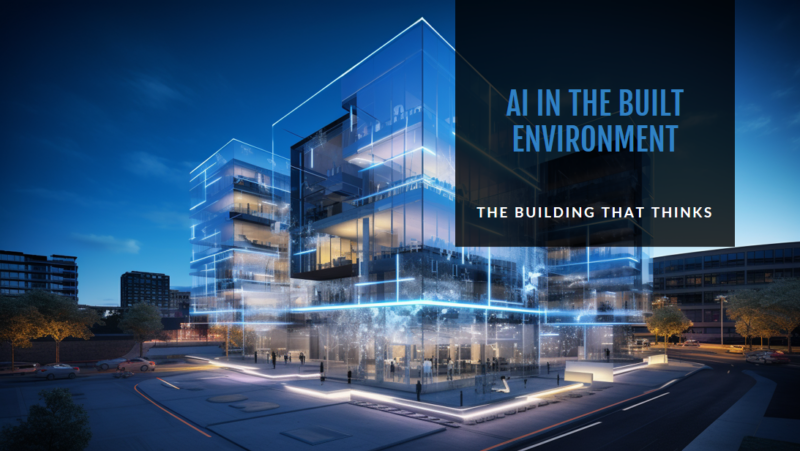
In the ever-evolving landscape of commercial real estate (CRE), artificial intelligence (AI) stands at the forefront of innovation, transforming traditional buildings into intelligent, responsive spaces. This shift towards AI-driven environments is enhancing operational efficiency and user experience across various building types, including offices, multifamily residences, and hospitality spaces.
AI in Office Spaces
AI is revolutionizing office buildings by optimizing energy usage, automating climate control, and improving security. The Edge in Amsterdam exemplifies this new standard, offering an environment that maximizes productivity and energy efficiency. This intelligent application of technology in office spaces is not just an operational upgrade; it represents a fundamental change in how we interact with our work environments.
“The intelligent use of AI in office spaces exemplifies how technology can amplify human potential and lead to unprecedented levels of efficiency.”
The integration of AI in office buildings signifies a leap towards more sustainable, productive workspaces that prioritize employee well-being.
Transforming Multifamily Residences with AI
In multifamily living spaces, AI is setting a new precedent for convenience and personalization. From smart access controls to predictive maintenance, AI technologies are creating more connected and personalized residential experiences. Such innovations not only elevate the standard of living but also streamline property management processes, indicating a significant shift towards intelligent living solutions.
Revolutionizing the Hospitality Industry
The hospitality sector is witnessing a transformation with AI-driven personalized guest experiences and efficient resource management. AI technologies, like the Hilton’s Connie robot, are redefining guest interactions, offering tailored services that enhance satisfaction and operational efficiency. This personalized approach to hospitality underscores the potential of AI to create memorable experiences for guests.
Challenges and Future Outlook
Despite the clear benefits, the integration of AI into the built environment faces challenges, including privacy concerns and the cost of technology adoption. However, as AI technology advances, these barriers are expected to diminish, paving the way for broader implementation and more innovative applications.
As we stand on the brink of this intelligent revolution within the built environment, the potential for innovation is boundless. The future of CRE, residential living, and hospitality is inherently tied to the adoption of intelligent technologies, promising a smarter, more efficient, and more sustainable future.
We’re keen to hear your thoughts on the integration of AI in the built environment. How do you see these innovations shaping our future spaces?
Share your insights and join the conversation.
Let’s build tomorrow, today.